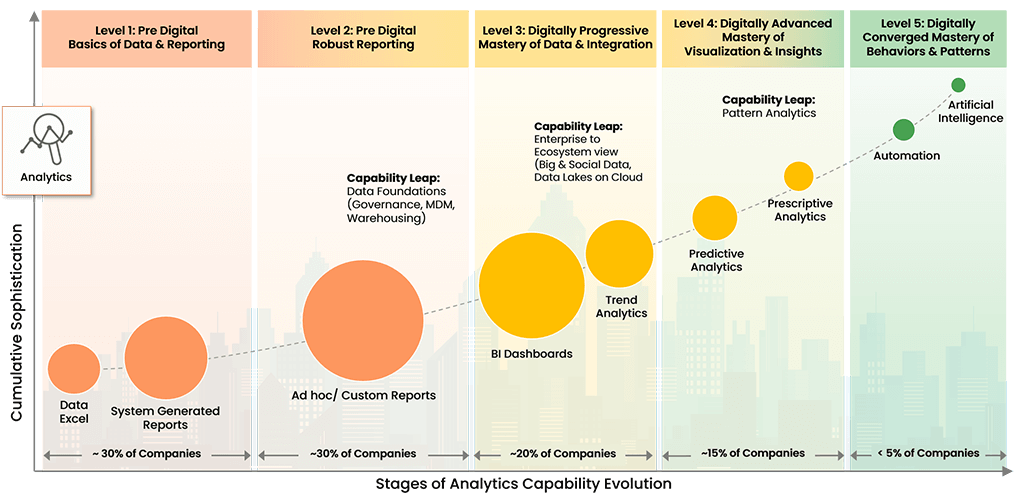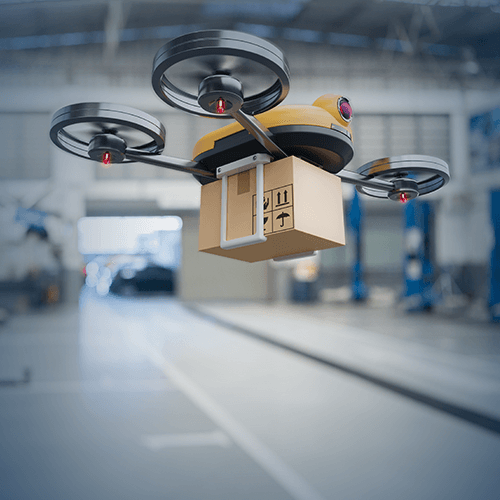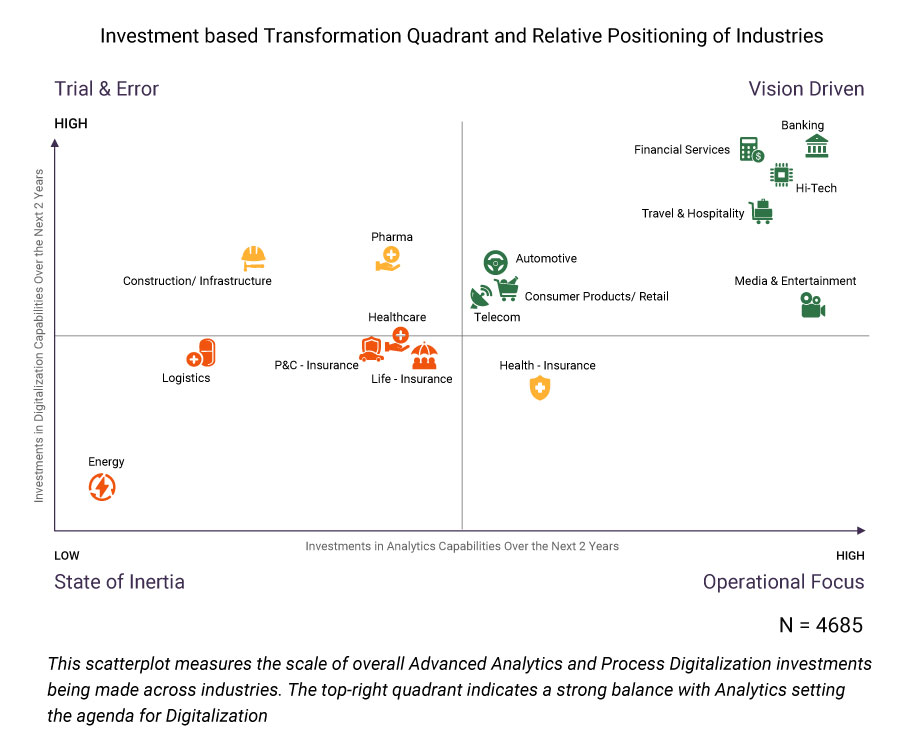Industry Dynamics
The logistics industry has historically been slow in digital transformations, but with the changing
global trend, logistics companies are sensing the urgency for holistic digitalization. Large-size
companies are leading the way, which sets the pace forcing small and medium incumbents to reinvent
continuously just to survive. There is a serious thread of disruption from disparate players in
other industries who are sensing an opportunity to capitalize on their experience and digital
capabilities.
The ecosystem of VCs and private equity have eased the entry barriers for new entrants who are
disrupting the business models with their digital products and services portfolios. As a result, the
logistics, industry is heading towards innovation in pursuing transformation in the digital era. The
rapid pace of change means that losing momentum even temporarily will lead to an irreversible
decline.
Only 7% of Companies Are Delivering on Their Transformational Initiatives
Our research has shown that 30% of companies will fail to survive this decade due to an inability to
evolve digitally. To address this negative trend, we have developed the Digital Enterprise Evolution Model™ (DEEM).
Digital Enterprise Evolution Model™

Copyright © 2022 Trianz
DEEM allows our clients to recognize digital evolution patterns, implement benchmarking and
prioritization strategies, and initiate application management protocols to satisfy stakeholder and
market requirements.
Rethinking the Value Chain
Changing customer expectation and mounting demand is the foundation for value chain reinvention in the
logistics industry. Globalization, urbanization, advancement of technology, improved infrastructure, and
shrinking of user lifecycles create entry opportunities for disruptors. Born-digital companies usecloud,
AI, ML, and automation to reduce incumbency advantages.
Striving to keep pace with industry average is not a recipe for leadership in this segment. Instead,
logistics companies need to use digitalization to deliver connected experiences throughout the value
chain and to all stakeholders. Nearly half of the large enterprises are planning total digital
transformation or reinventing experience, falling outside the industry average for digital adoption.
Logistics companies need to increase their investment for survival and positioning in the market place.
Critical Digitalization Trends
The logistics industry is still in the early stages of disruption. Majority of the companies are still
outside the quadrant of vision-driven digital transformation. This indicates that there is a perceived
urgency in the logistics industry to pursue digitalization relentlessly. On average, only one-fifth of
the respondents report investments in process digitalization and analytics.
Clearly, there is an immense scope for improvement for a majority of the logistics companies in terms of
an integrated strategic point of view for the digital era. Technologies like unmanned aerial vehicles
(UAV) are taking shape in the logistic sector and is in the initial stages of mass implementation.
Investment in Human Capital Management (HCM)
The logistics industry stands among the top three in planned human capital management investments in
terms of both processes and analytics. Given the importance of talent in this space, it is not
surprising that investments in advanced analytics and
AI-based automation for human capital outpace all other functions in the logistics industry. A
digital-savvy workforce is most crucial as transformation won’t be successful with technology adoption
alone. The logistics industry will need a workforce that is ready to harness the true potential of new
technologies and maximize the value across the value chain.
Experience the Trianz Difference
Trianz enables digital transformations through effective strategies and excellence in
execution. Collaborating with business and technology leaders, we help formulate and execute
operational strategies to achieve intended business outcomes by bringing the best of
consulting, technology experiences and execution models.
Powered by knowledge, research, and perspectives, we enable clients to transform their
business ecosystems and achieve superior performance by leveraging infrastructure, cloud,
analytics, digital and security paradigms. Reach out to get in touch or learn more.



















